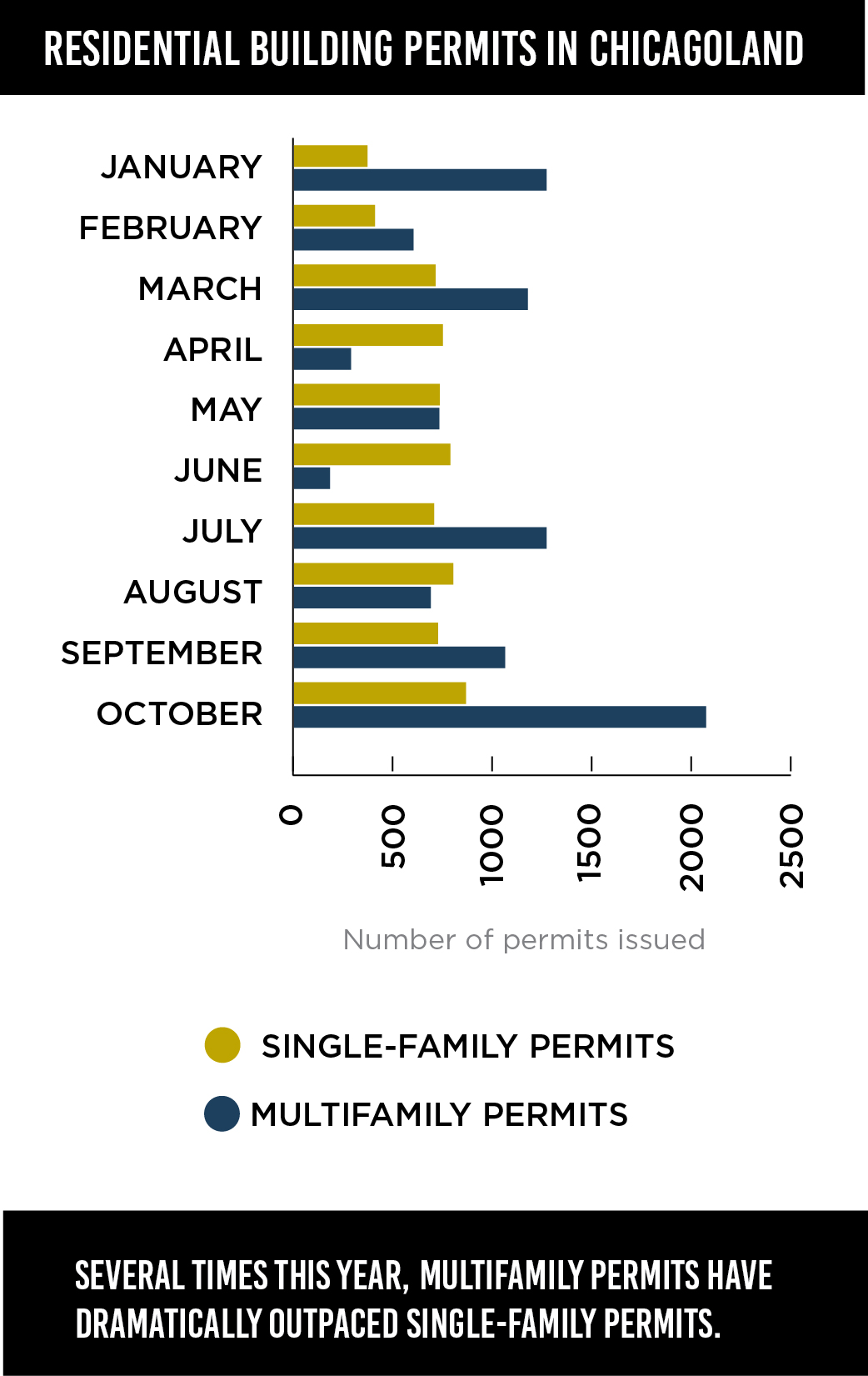NEW CONSTRUCTION
Where in Chicagoland do you think we’ll see the most growth in new construction?
Jim Esperson, David Weekley Homes: Next year, I expect to see an increase in growth for desirable suburban communities like Glenview, Naperville, Hinsdale, Barrington, Arlington Heights and Northbrook. Communities with great schools and convenient access to downtown Chicago and the Metra commuter lines will continue to be the strongest areas for new construction in the suburbs.
Alan Lev, Belgravia: I think we will continue to see growth in the core areas, downtown and surrounding neighborhoods. It still is not time to pioneer, and cost structure dictates that we continue building only in areas with higher rents and sales prices.
What’s the most surprising trend in new construction that you expect to extend in 2017?
Jim Esperson, David Weekley Homes: There continues to be a demand for energy-efficient building techniques and new “smart” technologies for the home, and we expect those trends to continue throughout 2017.
Alan Lev, Belgravia: I think developers will continue to build more high-end apartments. We are already seeing pressure on rents and occupancies on the high-end product, and thousands more units to come online in the next couple of years.
Do you think building regulations will change in the next year? If yes, how do you think they will change?
Jim Esperson, David Weekley Homes: With so many local governments involved in the building process in Illinois, regulations are certain to change. However, we do not expect significant changes to affect our business in the next year. While the approval process is still a very lengthy and expensive process in our market, David Weekley Homes has already sought to surpass the energy code in Illinois. This makes us confident that we will remain ahead of any significant changes to building regulations.
Alan Lev, Belgravia: Only slightly, and not enough to lower costs. The city of Chicago really needs a complete overhaul of the building code to be more in line with other costs, and to reduce costs. It does not appear that the city has the appetite to tackle that, though.
Do you foresee any changes coming to the Affordable Requirements Ordinance (ARO)? What effect do you think the ARO will have on your business next year?
Alan Lev, Belgravia: The only changes I foresee will be to make it more restrictive and expensive.
We are already having difficulty buying land. There is a disconnect between developers factoring in ARO costs and landowners’ desires to receive pre-ARO values; therefore, I think there will be a lull in the development of parcels subject to the new ARO for a couple of years. This may lead to a code-driven retraction in development.
